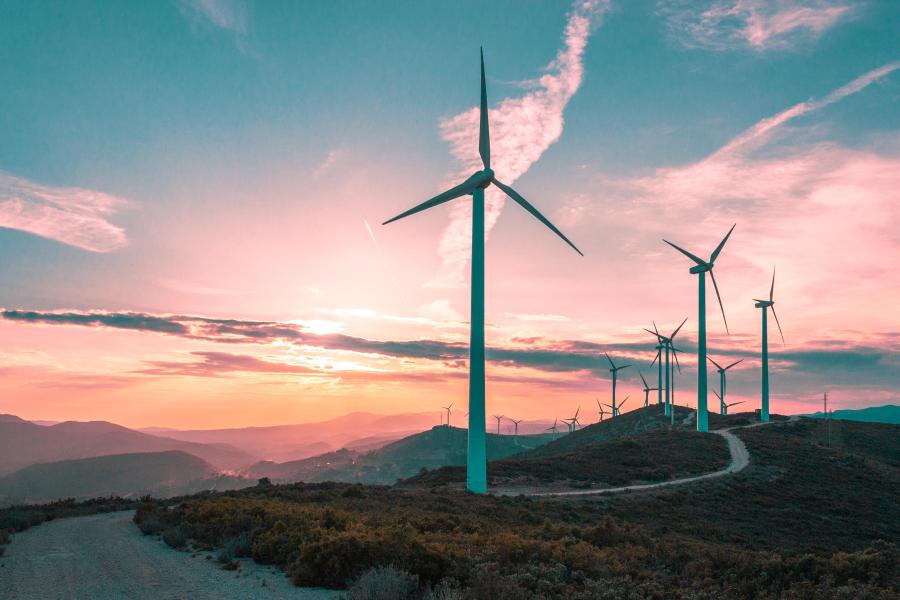
The European Investment Bank (EIB) will actively contribute to the objectives of the Global Renewables and Energy Efficiency Pledge, announced today at the World Climate Action Summit, the gathering of world leaders at COP28 in Dubai. The pledge, which was joined by more than 100 countries, alongside the COP28 Presidency and the European Union, aims to accelerate the pace and deployment of renewables and energy efficiency to limit global warming. It defines new targets for the global installed capacity of renewable energy sources, set to triple by 2030. In addition, it commits to doubling the global rate of energy efficiency improvements from 2% to 4% every year until 2030.
In accordance with its Climate Bank Roadmap 2021-2025, the EIB will support its partners from the public and private sectors in reaching these targets. The Bank has been active in both the renewable and energy efficiency sectors for decades globally. Over the past ten years, it has financed some €35 billion worth of renewable energy projects, from onshore and offshore wind to solar and hydropower. During the same period, it backed energy efficiency projects with close to €37 billion. To increase its firepower, it participates in various initiatives and facilities like Private Finance for Energy Efficiency (PF4EE) and European Local ENergy Assistance (ELENA). The latter provides grants and technical advice for energy efficiency and renewable energy projects. The Climate City Gap Fund, jointly implemented by the EIB, the World Bank and Deutsche Gesellschaft für Internationale Zusammenarbeit, supports early-stage city planning in low- and middle-income countries, promoting energy efficiency and renewable energy measures.
This decade is critical for addressing the planet’s climate emergency. According to the International Energy Agency, global warming can only be kept at a less damaging 1.5°C if the world drastically increases the use of renewable energy, while at the same time making big gains in energy efficiency. To achieve these aims, the participants of the Global Renewables and Energy Efficiency Pledge commit to work together to expand the financial support for scaling renewable energy and energy efficiency programmes in low- and middle-income countries, to reduce the cost of capital in those countries and to enhance technical support and capacity building. Multilateral development banks like the EIB will be key to all these efforts.
The Bank’s resolve to play its part in making Europe and the world more sustainable can be seen in its commitment to REPowerEU, a plan introduced by the European Commission in 2022 with the aim to rapidly reduce dependence on Russian fossil fuels and fast-forward the green transition. The EIB agreed to support REPowerEU by raising the Group’s clean energy financing volumes to unprecedented levels between 2022 and 2027. In July 2023, it earmarked €45 billion for projects aligned with REPowerEU. This funding comes on top of the EIB’s already substantial support for clean investments and represents a 50% increase compared to the original €30 billion package announced for REPowerEU in October 2022.
As the EU climate bank, the EIB has committed to considerably scaling up its climate and environmental sustainability financing globally. More than 50% of its overall lending needs to back climate and environment projects by 2025. In 2022, the Bank already exceeded this target with 58% of its activities contributing to these sectors. Another goal in the EIB’s Climate Bank Roadmap is to leverage €1 trillion of climate and environment investment between 2021 and 2030. It is well on track to meet this target. The EIB was also the first multilateral development bank to be Paris-aligned, as of 2021, and the first international financial institution to stop investing in unabated fossil fuel energy projects.